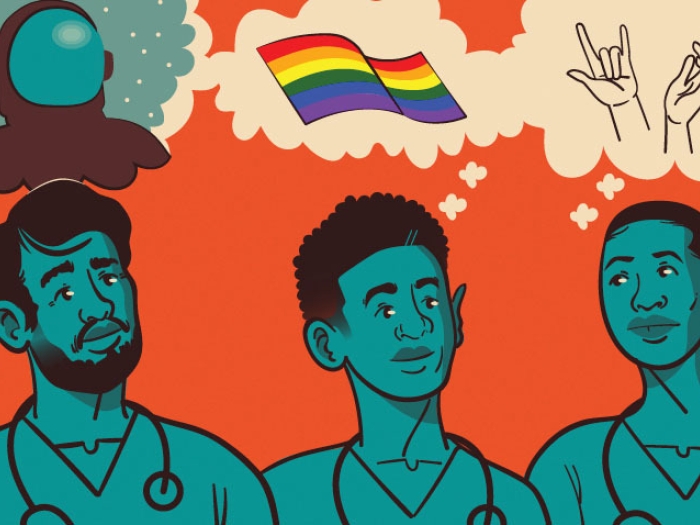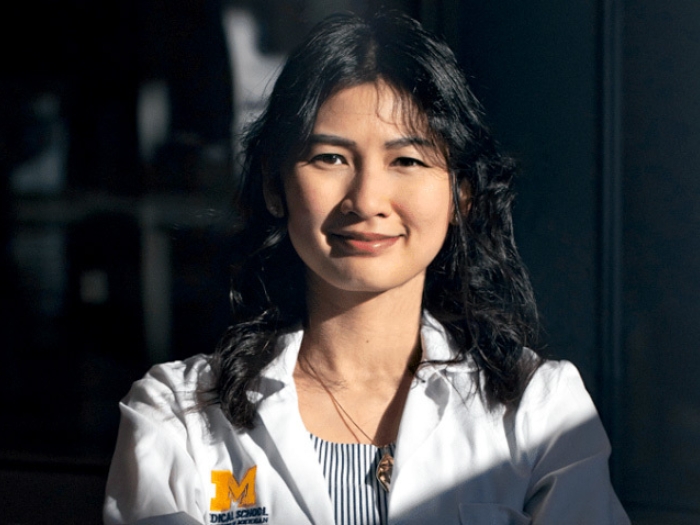Applying to medical school is more than a numbers game. Personal attributes matter, too, top schools say.
7:00 AM
Author |
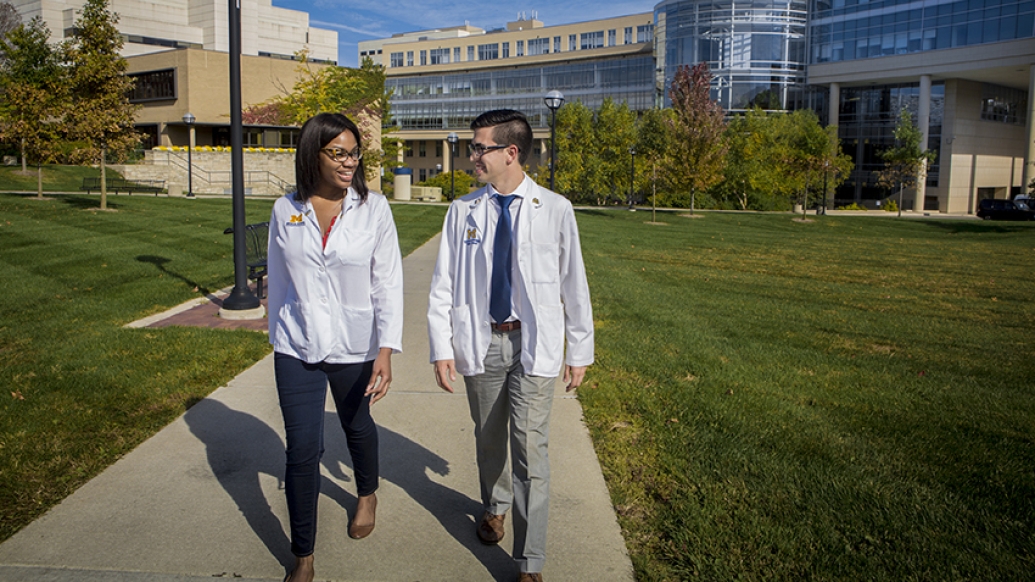
Medical school applicants need a rigorous academic transcript, strong personal recommendations and real-world experience to satisfy admissions counselors. That's a given.
Just as important: personality and passion.
MORE FROM THE LAB: Subscribe to our weekly newsletter
Those qualities make for curious, considerate doctors — and they help top individuals withstand an in-depth, highly competitive review, says Steven Gay, M.D., M.S., assistant dean for admissions at the University of Michigan Medical School.
Contenders, then, must strive to present themselves as a complete package.
"We want to know not only what you've done," says Gay, "but also why you've done it and what you had to go through to do it."
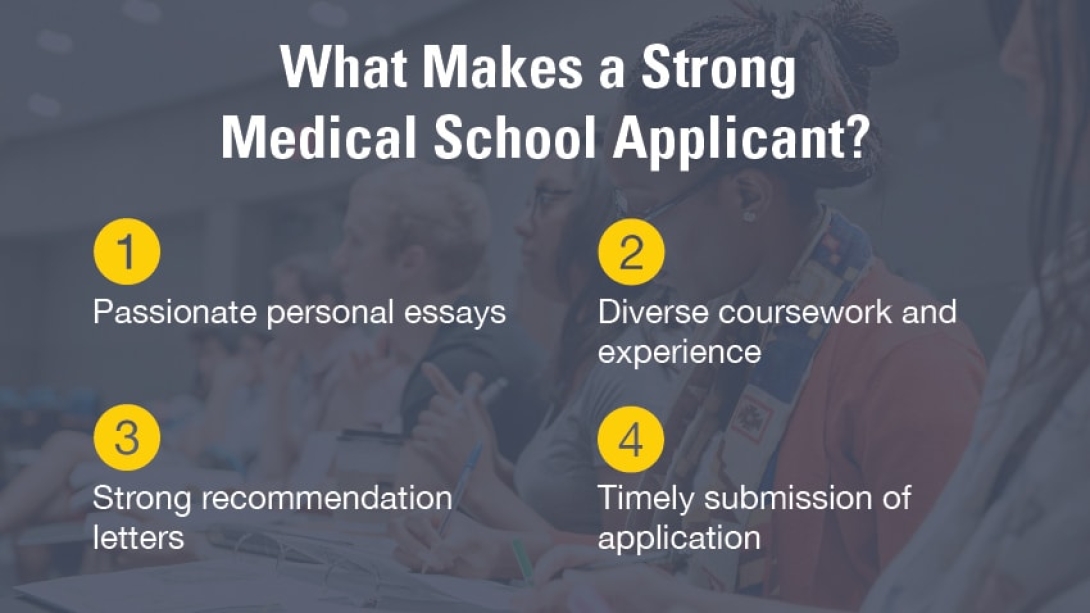
Plenty of top students neglect that approach.
"Some people have the assumption that you'll be good with test scores and grades," says Carol Teener, M.A., admissions director for the U-M Medical School. "They're really surprised when it doesn't work out for them."
Teener says a good candidate tells the story of why he or she wants to practice medicine with diverse coursework, commitment to extracurricular pursuits (both medical and nonmedical) and compelling personal statements.
In addition, the new CASPer test requirement for those applying in 2018 and beyond will help provide another perspective of each candidate. CASPer is one of a new crop of situational judgment tests designed to provide a robust and reliable evaluation of the most desirable personal and professional characteristics in medical school applicants.
Timing also is key. Because there are limited spots available — particularly at top medical schools — those who wait until the last minute to apply face a disadvantage.
Gay and Teener offered some med school application tips useful to all hopefuls, no matter where they want to attend.
Apply early
Most medical schools, including U-M, accept applications on a rolling basis.
That means the earlier a student applies, the more interview slots remain. (Of U-M's 6,926 applicants in 2016, 527 candidates were offered interviews.)
SEE ALSO: Match Day Explained: How Med Students Take the Next Career Step
Notes Gay: "If we read somebody great, we're not going to wait" to extend an offer to meet in person.
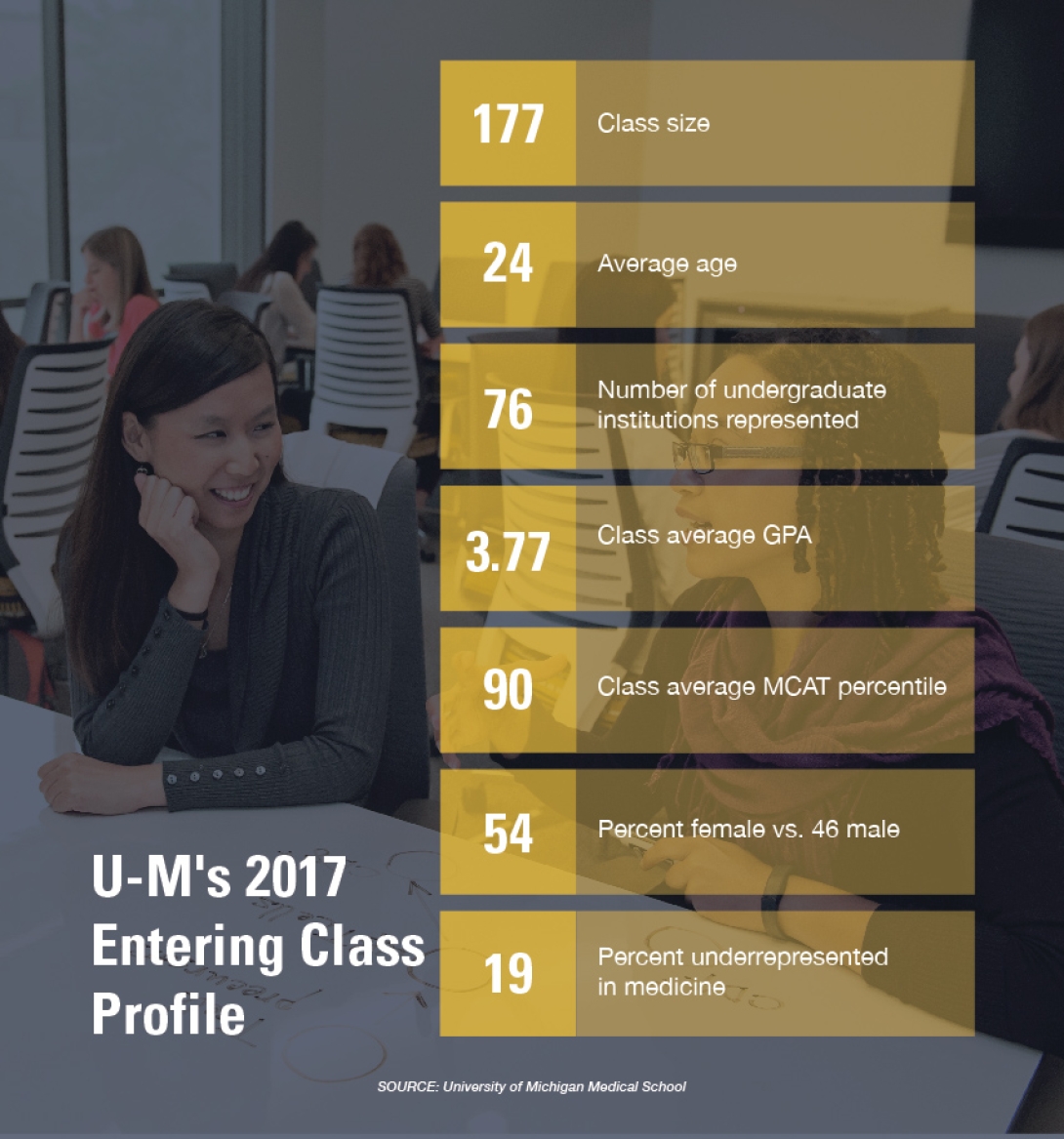
Starting in early June, preliminary applications are accepted via the American Medical College Application Service (AMCAS) central application.
As a result, early summer is crunch time: More than half of U-M applicants last year submitted in June, says Gay.
This timing also holds symbolic weight.
"Generally speaking, it shows they're prepared," says Teener, "and that shows through in their applications."
Express yourself — imperfections and all
Academic records matter. But so do essays.
Written work is the best way for an admissions representative to get a better understanding of the individual in front of them.
"I often say the best essay is one that shows you understand who you are, what your place in the world is becoming and what's important to you," says Gay.
"I want to see that you are a person of depth and complexity who looks at the world and thinks about what you can do to make it better."
That's why such reflection — Michigan requires three secondary essays beyond AMCAS's required universal written prompt — ought to demonstrate growth or confirmation tied in some way to the candidate's career choice.
Past examples, Teener says, include stories of atypical family hardships, the balancing act between schoolwork and Division I sports, and a challenging research or professional experience that presented a learning opportunity.
What candidates shouldn't fear: detailing a moment of weakness or even failure.
"I'll actually be worried when everything's perfect," says Gay. "I don't believe that there are people out there so extraordinary they've never struggled."
After all, struggles make stronger students — and doctors. Physicians face life-or-death consequences every day, so learning to embrace self-doubt or difficult choices "should not start on the first day of medical school," Gay says.
I want to see that you are a person of depth and complexity who looks at the world and thinks about what you can do to make it better.Steven Gay, M.D., M.S.
Find advocates who know you best
Those who write letters of recommendation should be able to objectively speak about not only a candidate's core competencies, but also his or her suitability for medical school.
Which means these letters should also demonstrate how an individual exemplifies the 10 qualities that U-M is looking for when selecting each year's incoming class:
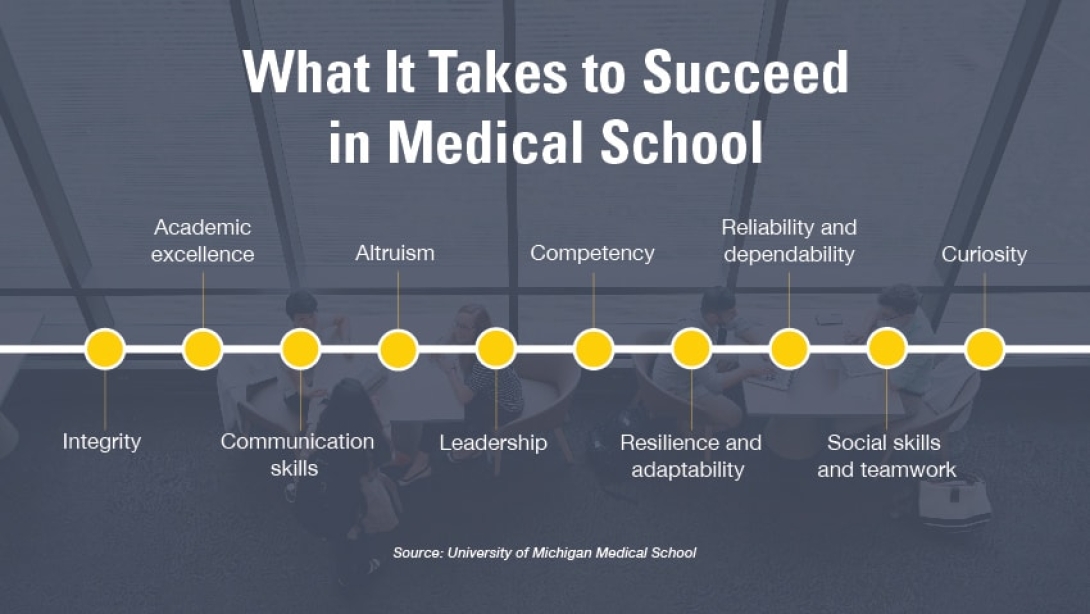
The letters play a significant role in the evaluation process.
"They are particularly important at the final review for admission," Teener says. "Candidates need to find recommenders who know them well and can speak about their attributes of resiliency, dependability, intellectual curiosity and the like."
Applicants at U-M are required to submit at least three letters of recommendation with a maximum of six.
Students ought to determine and contact their mentors well in advance — and, if possible, schedule a meeting or phone call to get reacquainted.
Pre-professional advisers at a student's undergraduate institution can also help guide him or her through the application and, says Teener, "know the rapidly changing landscape of what medical schools want." Just contact such advocates early.
Let your passions shine through on your med school application
It's a mantra Gay repeats often: There is no set path to medical school. Nor is there any field of undergraduate study that earns higher preference.
SEE ALSO: To Achieve Diversity Among Doctors, Start in Pre-Med Years
Plenty of incoming students have earned biology or chemistry degrees. But English and anthropology majors — assuming they also fulfill coursework requirements of rigorous science and mathematics — aren't any less attractive to admissions representatives.
That's because people who follow an academic path that stimulates them often exude that zeal on their resumes and in personal statements.
Notes Gay: "Too many students say, 'I have to do this, this and this.' They're going through the motions to get what they want but can't figure out why they want it."
At the same time, he says, "our curriculum is evolving dramatically" as incoming students enter medical school "with a great deal of experience" outside of the classroom.
Extracurricular and workplace experience will vary by candidate, Gay says. But doing "three summers of research because you were told you should do research" without a compelling reason won't suffice, he notes.
Instead, Gay and his colleagues want to see internship and professional experience that resonates with an individual. Part-time jobs and arts and athletic interests aren't discounted; they can demonstrate that a person is responsible and well-rounded.
Applicants needn't spread themselves thin trying to do everything, but a long-term dedication to some causes is appealing, says Teener: "When you look at the amount of time an applicant spends on activities, you get a sense of what's important to them."
This post was updated on April 25, 2018, to include details about the CASPer test requirement.

Explore a variety of healthcare news & stories by visiting the Health Lab home page for more articles.

Department of Communication at Michigan Medicine
Want top health & research news weekly? Sign up for Health Lab’s newsletters today!

